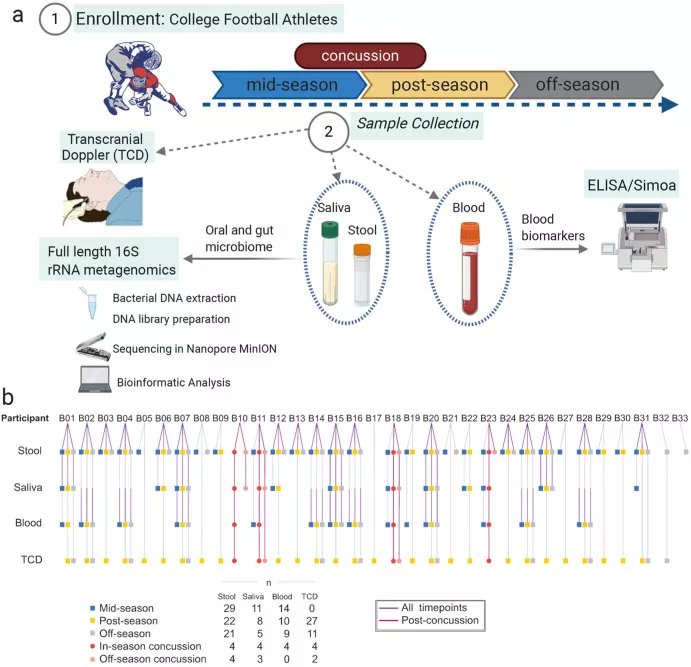According to new atlas, the inherent difficulty of correctly diagnosing concussion has led scientists to look around for biomarkers that can clearly show the degree of brain injury For scientists at the Houston Methodist Institute, the search led them to the bacterial community in the gut, where they found that changes after concussion could be used to reveal the state of recovery
The serious consequences of a head impact, such as skull fractures or brain swelling, may be shown by X-ray imaging or CT scans, while microscopic injuries that damage nerve cells may be so subtle that they are not found. Therefore, allowing subjects to self report dizziness, blurred vision or nausea is the preferred diagnostic technique for on-site evaluation by medical experts. However, among competitive athletes who do not like to sit on the bench, the risk of underreporting and secondary brain injury is very real.

Therefore, the idea that concussion may produce specific biomarkers that can be used for timely and definite diagnosis is very attractive, and some research teams have made progress in this field. Blood testing is an area where we see a lot of activity. The U.S. Food and Drug Administration (FDA) even approved the first such test in 2018, which tracks two proteins that appear in the blood after brain injury. Saliva and urine tests are other technologies that show potential.
Recently, scientists have also begun to explore the potential of our intestinal bacteria to reveal clues of brain injury. The study of animal models and cell cultures has provided promising signs. The team at the Houston Methodist institute further investigated this by tracking 33 college football players over a season and collecting blood, feces and saliva samples at three time intervals to establish their intestinal microbiome map.
After a concussion, the team found that levels of two bacteria, which are usually abundant in healthy people, fell. They also found an association between brain injury related proteins in the blood and brain injury related bacteria in the feces. These may be the result of inflammation caused by concussion, which changes the proteins and molecules circulating in the body, breaks through the intestinal barrier and reshapes intestinal bacteria and metabolism.
These results together provide early evidence that "detecting changes in the intestinal microbiome may help improve the diagnosis of concussion after head injury," the researchers wrote in the paper. Study author Sonia villapol said more work needed to be done, including larger sample size studies, but these types of biomarkers could one day be used not only to confirm concussion, but also to measure the degree to which patients recovered from injury.
"You haven't recovered before your gut microbiome returns to normal. That's why studying the gut is so useful. It doesn't lie. That's why people are so interested in using it for diagnosis," she said
The study was published in brain, behavior and immunity - health 》In the magazine.